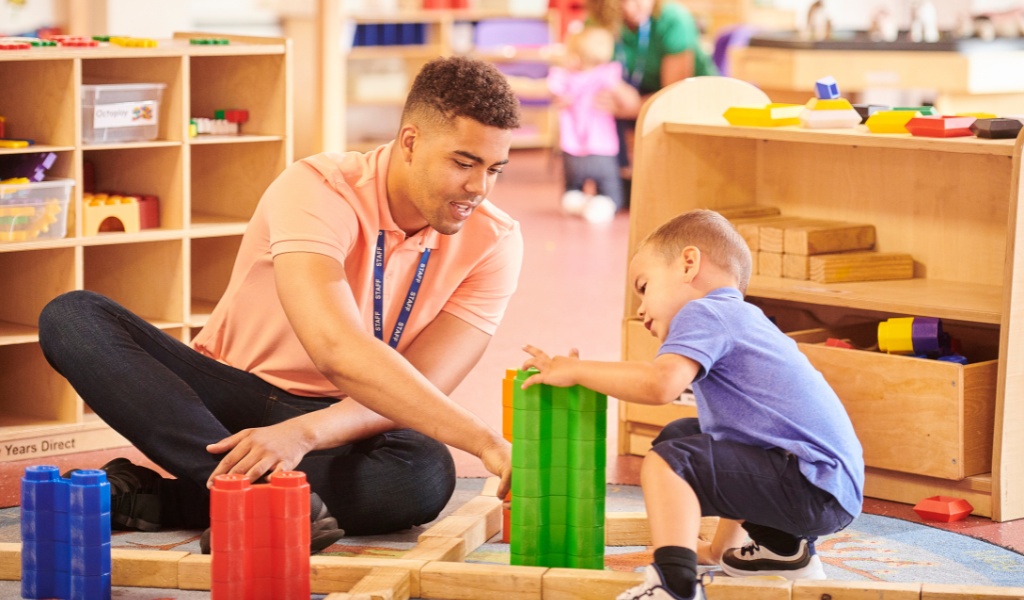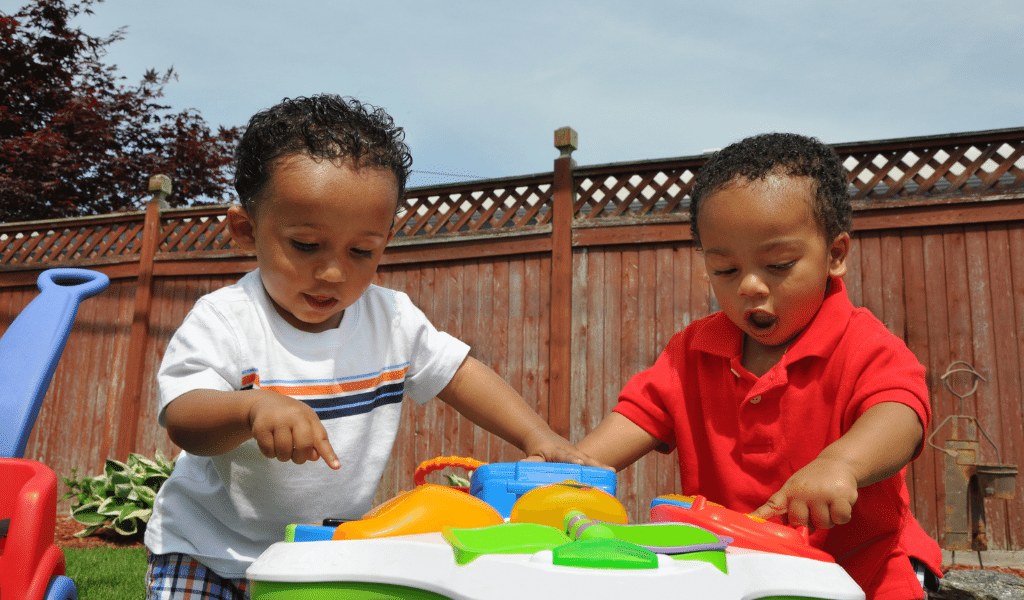In this article, Dawn Rigby early childhood expert and advocate for a play curriculum shares her top tips for how you can make play work in your early years setting.
Play, such an emotive word and something we refer to when working with young children. It is probably the least understood aspect of being in early years and yet it is one of the most important elements of childhood and is so much a part of childhood. We know that play is the way that children learn – all areas of development are covered as children play providing holistic development. When children are able to play, freely, with what they want, for as long as they want and in the way that they want, then their levels of involvement will be high and new learning will be taking place.
Children need dynamic spaces where they can be curious and learn to discover new and interesting things. It is useful to ensure that the environment has open-ended resources to enable exploration and endless possibilities. Loose parts are a fantastic, open-ended resource that can become anything. It can be helpful to consider your environment from the viewpoint of the children. As settings we need to ensure that we are providing opportunities for all different types of play to be explored. A well-planned environment both indoor and outdoors will enable and cultivate children’s abilities and opportunities to play.

It can be beneficial to carry out an audit of your setting and consider what features enable adult and child interactions. The adult has such an important role in ensuring play works in your setting. Listening to the child, being attentive to what interests them and observing their play to decide if we can add to it. Our engagement with the children needs to be sensitive and responsive, following their lead to ensure we do not take control. We need to consider our use of questions to ensure they are appropriate; questions can be stressful for children and can interfere with their thinking. Our role is to become attuned to children’s play, we can plant ideas and enhance their play, always being mindful of not taking over. We should not be consumed by outcomes or worrying about what the purpose is – children know the purpose of their play, we just need to find out.

Play can be challenging to define as it means different things to different people. It is crucial that all of the staff understand what your play pedagogy means and it is useful to agree to that together as children and the parents/carers need consistency. For children, play is deeply serious and they do not tend to consider play and learning as separate. Play should be freely chosen and self-determined by the children and it is important to understand that they can be actors and also directors in their play, stepping in and out of the frame of play.
Breaking play down into different parts makes it more tangible but it is so central to children’s learning and development that it should be seen as a whole. It is one of the most important ways that children develop and learn and so it can be beneficial to see the whole picture and this will also support our pedagogy of play. Children do not break play down into different areas, to them, play is play. If settings spend too much time trying to set up areas for different types of play, we may end up limiting play opportunities.

The impulse to play is innate as we are all born with the natural curiosity and desire to play and explore. It is interesting to note that all mammals play and it is how we learn the rules of the world. Play is also fundamental to our health and wellbeing. It is suggested that we be mindful that children have the right to play and this is laid out in the United Nations Convention on the Rights of the Child (UNCRC) (Unicef, 1989). Article 31 states that all children have the right to engage in play and recreational activities. This can be helpful if ever play and your play pedagogy is challenged.

Dawn Rigby has been immersed in all facets of the Early Years sector and like all of those working in this area, she is passionate about young children’s growth and development. Dawn originally trained as a Montessori teacher, and has Early Years Teacher Status, a level 3 in speech and Language development, a Postgraduate Certificate in Education and a Masters Degree from the University of Roehampton.
A key principle of Dawn’s practice is that all those working with children need a good level of understanding of knowledge and theory and an outstanding practitioner needs to be able to demonstrate this knowledge by putting it into practice. She believes that young children need a special environment in which to grow and deserve practitioners who are inspiring, dynamic, reflective and passionate about their learning.
In the last few years Dawn has been working on ways to develop playful interactions to enable strong emotional connections between adults and children. She feels very passionately that adults need to engage with children as play partners, supporting, extending and respecting their play, valuing those play choices. Dawn firmly believes in the child’s right to play and is an advocate for a play curriculum in early childhood, especially through In the Moment Planning.
Reference:
Unicef (1989) https://www.unicef.org.uk/what-we-do/un-convention-child-rights/